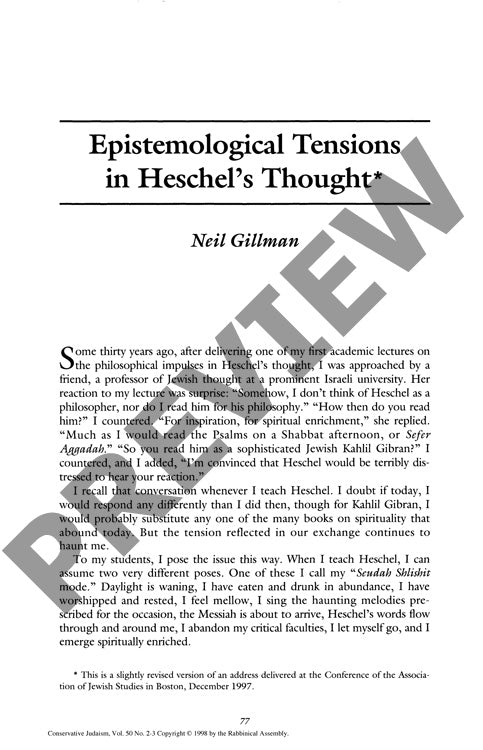Epistemological Tensions in Heschels Tho
Couldn't load pickup availability
Abstract This study examines the fundamental epistemological tensions inherent in Abraham Joshua Heschel's theological methodology, specifically the conflict between his roles as spiritual guide and rigorous philosopher. Through comparative analysis with the philosophical frameworks of Gabriel Marcel and Paul Ricoeur, this investigation explores Heschel's distinction between "situational thinking" and "conceptual thinking," and his assertion that theological inquiry should prioritize personal testimony over abstract philosophical reasoning. The methodology involves close textual analysis of Heschel's major works, particularly *God in Search of Man* and *Man is Not Alone*, examining his treatment of religious epistemology and the verification of theological claims. The study reveals that while Heschel advocates for critical examination of religious statements, he simultaneously dismisses traditional philosophical approaches when they challenge primordial religious awareness. Key findings indicate that Heschel's position on self-verifying religious experience lacks the methodological rigor expected in philosophical discourse, failing to engage with established literature on religious epistemology or acknowledge potential pitfalls of his approach. The analysis concludes that despite Heschel's phenomenological insights and theological acuity, his work exhibits significant methodological inconsistencies that reflect an underlying tension between his mystical commitments and philosophical aspirations, raising questions about the adequacy of his epistemological framework for contemporary religious inquiry.

More Information
-
Physical Description
-
Publication Information
Published 1998
ISBN
-
Publication Credits
Neil Gillman

